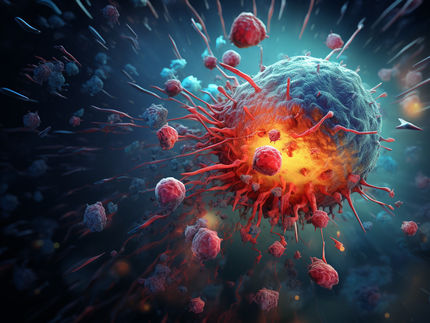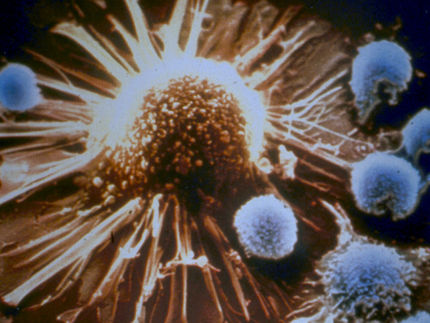Immunotherapy set to revolutionise cancer treatment
Immunotherapy is set to revolutionise the treatment of cancer, according to ESMO President Professor Rolf A. Stahel. His comments come as the ESMO Symposium on Immuno-oncology 2014 is about to open in Geneva, Switzerland.
“We expect that the new possibilities of immunotherapy will substantially change the treatment of cancer,” said Stahel, who is also Scientific Co-Chair of the meeting. “And this is not just in one disease, but across the board in many types of cancer. The ESMO Symposium on Immuno-Oncology will highlight all exciting immunotherapy topics which are now on the verge of entering clinical practice or are already practiced in some of the leading centres.”
Professor George Coukos, also Scientific Co-Chair of the meeting, director of the Department of Oncology at the University Hospital of Lausanne (CHUV) and the Ludwig Cancer Research Centre, Lausanne, Switzerland, said: “There is no doubt that immunotherapy is rapidly emerging as a self-standing therapeutic domain in oncology. This is in the same way that chemotherapy, molecular targeted therapies, radiation therapy or surgery have made a very significant contribution to the treatment of cancer patients.”
The latest developments in immunotherapy will be presented by international experts from Europe and beyond on topics including checkpoint blockade, T cell therapies and vaccine development.
Commenting on the promise for checkpoint blockade, Coukos said: “There are very important developments now in many disease types. The unexpected news is that checkpoint blockade works not just in tumours that were considered to be responsive to immunotherapy, such as melanoma or renal cell cancer. It is also effective in patients who have not previously responded to immunotherapy, including those with lung cancer, gastrointestinal tumours and genitourinary tumours. Medical oncologists have another tool to treat patients, and this ESMO meeting will help them increase their understanding on the potential of this therapy and what it means for clinical practice in the future.”
T-cell therapies and T-cell engineering are another rapidly emerging area that will be explored at the meeting. Responses have been seen with adoptive T-cell therapy in haematological malignancies, lymphoma and leukaemia, but also in solid tumours such as melanoma and sarcoma. Research is ongoing in various disease areas such as prostate and breast cancer and the most recent findings will be presented.
Vaccine development and cancer antigens are another hot topic at the ESMO symposium. Coukos said: “We have invited top experts in the field to discuss which antigens should be pursued, whether they should be mutated antigens, and how the field is progressing on this fast moving treatment.”
Commenting on the growing importance of immunotherapy in oncology today, Coukos said: “Immunotherapy capitalises on the ability to activate the immune system in a robust way. That has paid off, demonstrating that in fact there is a very vigorous immune response against tumours that can be activated using antibodies that block immune checkpoints, or using combinations with vaccines, or taking this response out of the body and re-educating and re-engineering it with T-cells in the adoptive T-cell transfer approach.”
He concluded: “All of these areas are rapidly evolving and we are seeing responses and success stories in various areas of oncology, to the point that now I think there is no doubt in the oncology community that immunotherapy is here to stay. Immunotherapy will continue to make a significant impact as we optimise the technology and the medical science behind it.”
After a very successful first edition in 2013 and in light of the growing importance of immune therapies in oncology, the second “ESMO Symposium on Immuno-oncology – Advances in cancer immunotherapy: from vaccines to antibodies and cell therapies” is expected to welcome over 400 participants from all over the world: medical oncologists from all areas of specialisation as well as other oncology specialists interested in learning the basics of immunotherapies, hearing the latest research results, understanding how to deal with treatment options and toxicities and interpret the new wave of data.























































